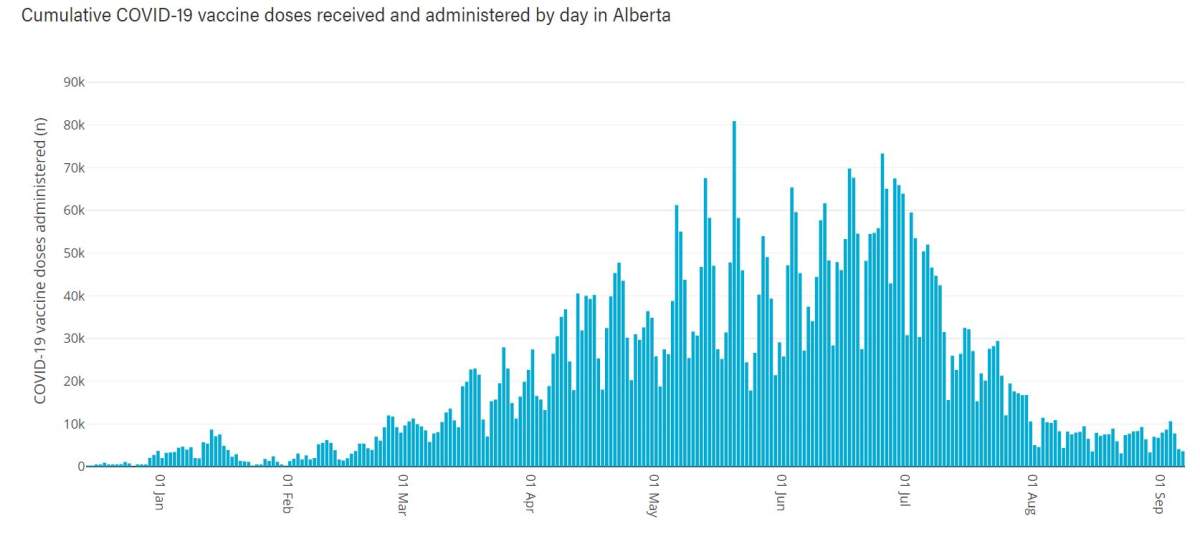Days into Alberta’s vaccine incentive program, thousands of Albertans have taken advantage of the free cash, but experts say the initiative is a useless effort in the long term.

The province is offering a $100 gift card to Albertans 18 or older if they get a first or second dose of an approved COVID-19 vaccine between Sept. 3 and Oct. 14.
According to Alberta Health, between Sept 3 and 6, 11,731 first doses were administered along with 14,322 second doses. The total is 26,053.
The province says that’s a “noticeable increase,” but others say it is not.
“The uptick due to the extra $100 debit card that people are getting is really, really fairly insignificant, both from a statistical and from a clinical perspective,” said Dr. Brent Macdonald with the Macdonald Psychology Group in Calgary.
As a psychologist, Macdonald said he sees people who were already vaccinated for health and safety reasons.
“I think if people, at this point, haven’t gotten their vaccine, $100 is really not going to convince them to make a choice to get a vaccine, largely because the reason they’re not choosing to get vaccinated at this point is based on a value system or based on fear,” he said.

Get weekly health news
“And $100 isn’t going to get rid of that fear or get rid of that value system, so odds are it’s probably not going to be a really significant uptake in the vaccine process.”
Amy Kaler, a University of Alberta sociology professor, agrees.
“If my reason for not being vaccinated yet this many months into the availability of vaccines, if that was because I thought the vaccine is going to change my DNA or that Bill Gates somehow wants me under his control, $100 is not going to take those beliefs away or change those beliefs, so it’s really a fairly futile gesture,” she said.
“It makes everyone angry and it exacerbates divisions within Alberta that have opened up over the course of COVID, and there’s really no evidence that this is a good way to reach a higher level of vaccination in a community.”
Kaler doesn’t know what the monetary tipping point is but doesn’t think we need to find out.
“Giving people money, paying people to get shots — whether it’s $100 or whether it’s $100,000 — is just a flat-out bad idea,” she said.
Both experts say vaccine passports are a good idea, adding they’ve been successful in places like Ontario and B.C.
“If we look globally at other measures that have been successful, the idea of a vaccine passport that allows you to attend sporting events, that allows you to attend social and cultural events and going to even simply the restaurants, that’s going to make more of a difference than a $100 debit card,” Macdonald said.
Kaler said: “The vaccine passport seems to be the most effective and broadly acceptable measure.”

The Alberta government has said it will not be implementing a vaccine passport and the best way through the pandemic is for every Albertan to get vaccinated.








Comments
Want to discuss? Please read our Commenting Policy first.